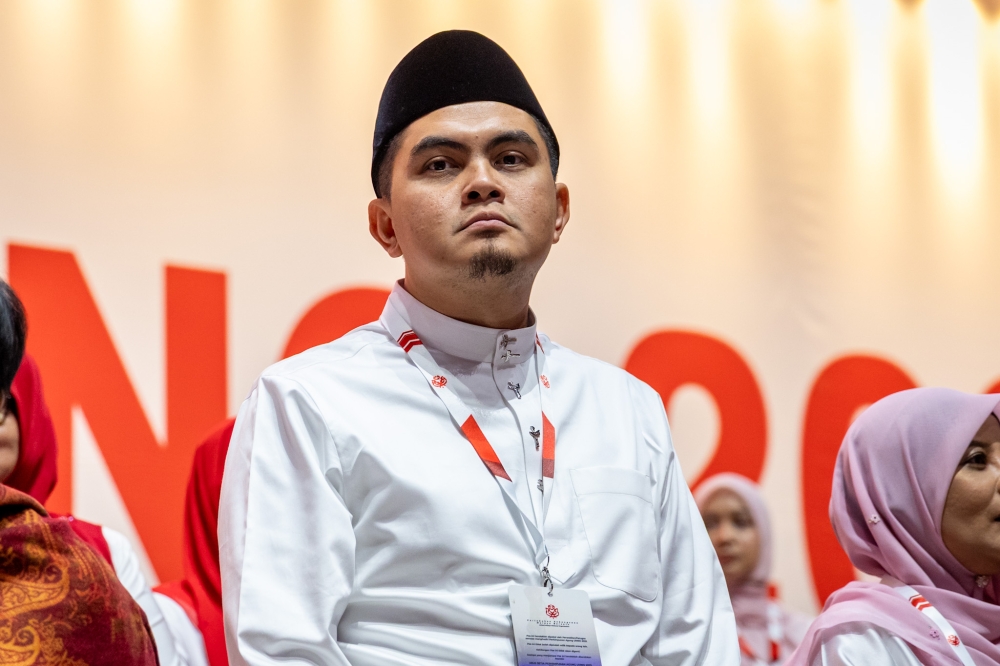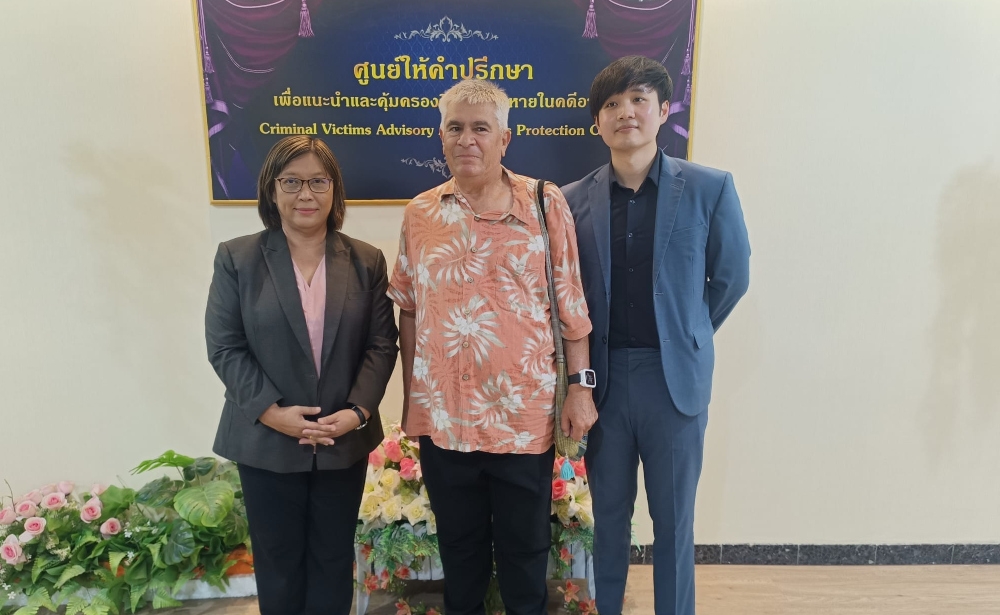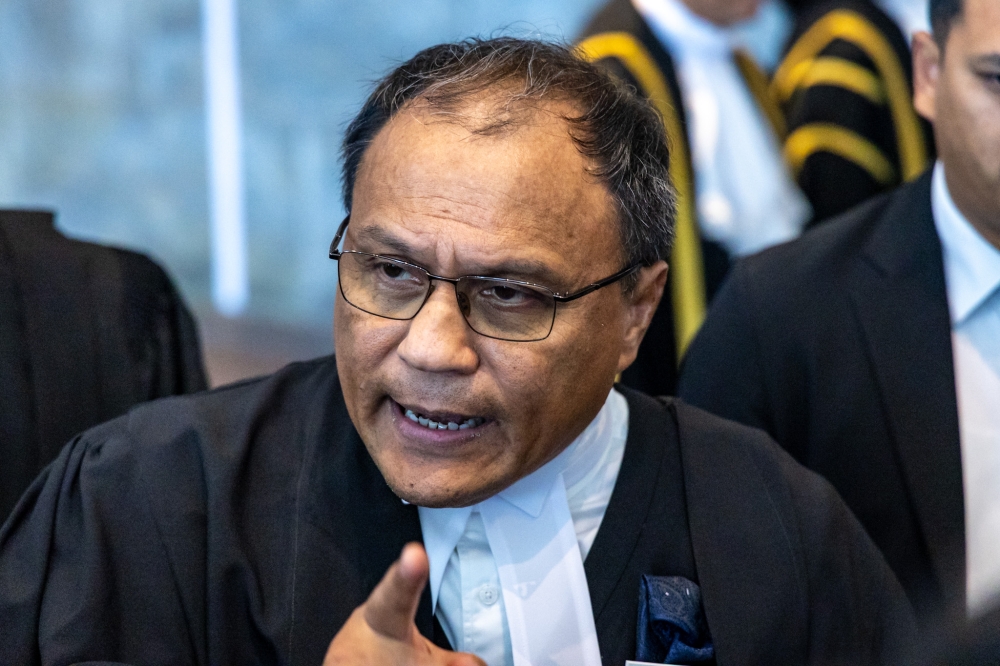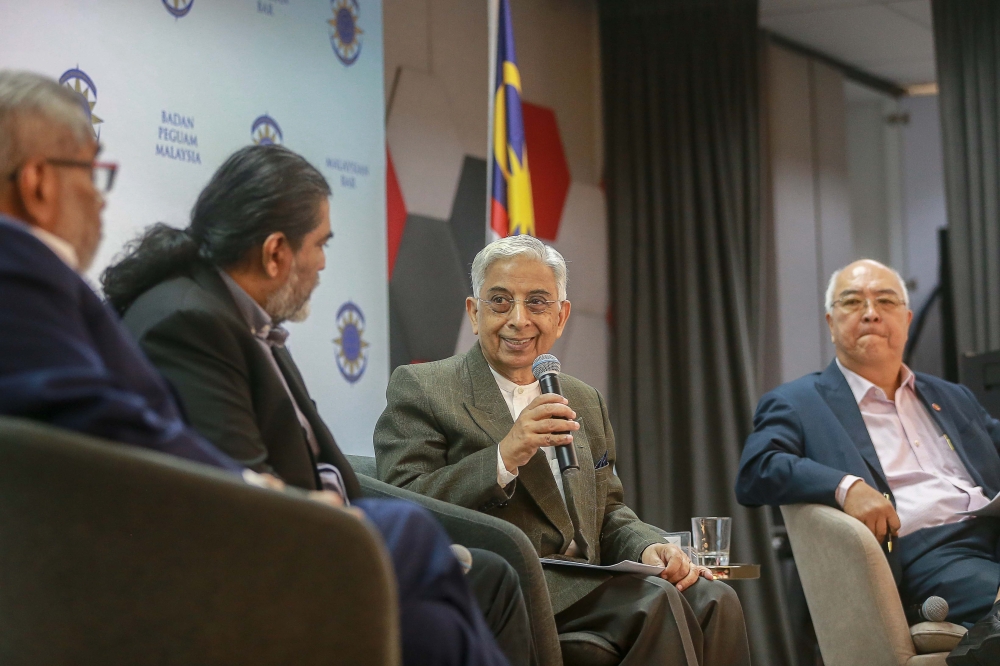KUALA LUMPUR, May 10 — The Judicial Appointments Commission (JAC) — a panel which filters candidates to be judges based on their merits, ability and integrity — was a good step forward for the selection of judges in Malaysia, legal experts told a forum organised by the Malaysian Bar today.
In calling for the JAC to be retained and further improved, the law experts even discussed suggestions such as amending the Federal Constitution to include and enhance the JAC’s position, and limiting the prime minister’s role in the judicial appointment process.
Currently, there is a two-stage process in Malaysia for the selection and appointment of judges.
The JAC first vets through potential candidates to make sure they are qualified and suitable and then votes on these candidates, before recommending the selected candidates to the prime minister.
If the prime minister accepts these recommended names, the prime minister then gives advice to the Yang di-Pertuan Agong for these candidates to be either appointed or promoted as judges. The Agong makes the appointment after consulting the Conference of Rulers.
But the prime minister can ask for the JAC to provide other recommended names if he does not accept the candidates given, before he eventually gives advice to the King for judges to be appointed.
Emeritus Prof Datuk Shad Saleem Faruqi, who was formerly a JAC member, said the JAC should continue to exist and suggested that the prime minister’s role be limited to just a formal role during the process of appointing judges.
“I personally support the existence of the JAC, though I recognise there is need for some reforms, especially on the issue of whether the recommendations of the JAC should be binding on the prime minister,” the holder of Universiti Malaya’s Tunku Abdul Rahman chair said as a speaker at the forum.
“I think the prime minister and the Conference of Rulers, their role should be a formal role whereby the names are sent and there’s some consultation.
“For example, the prime minister sends the name to the King, the King is required to consult with the Conference of Rulers. ‘Consult’ is not the same thing as ‘consent’, but consultation is useful because some facts might come out,” he said, noting that there was previously a Conference of Rulers meeting many years ago when a judge who was to be promoted was discovered to have had more than 30 unwritten judgments.
“I think consultation is good, but ultimately the recommendation of the JAC should be binding,” he said, adding that the prime minister, Agong and the Conference of Rulers should continue to play a role in the process of appointing judges.
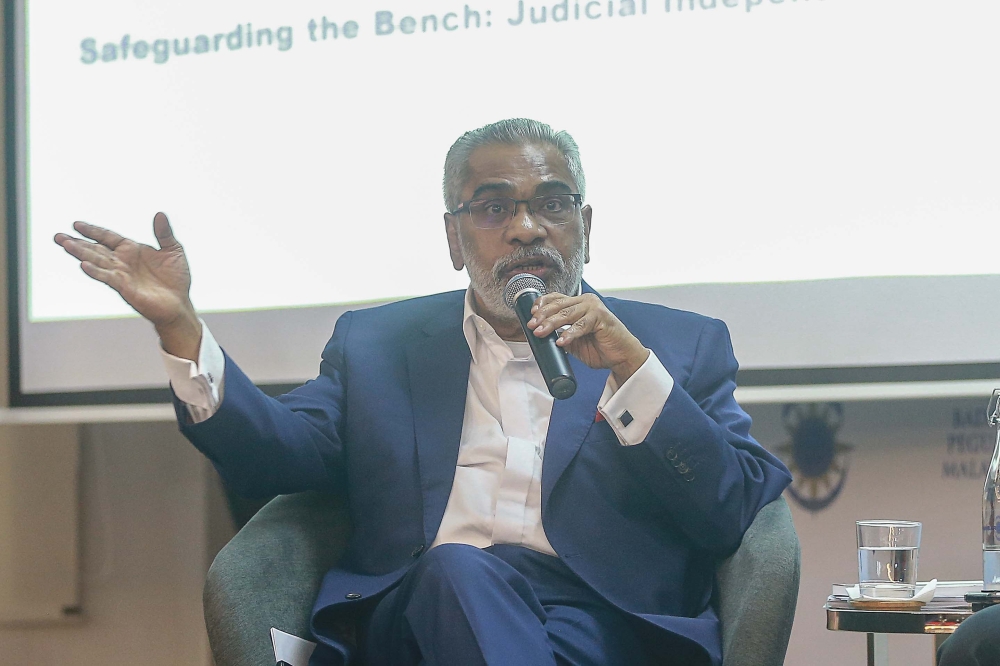
Fellow forum speaker Datuk Seri M. Ramachelvam, who is co-chair of the Bar Council’s Civil Law and Law Reform Committee, said the introduction of the JAC has improved the process of how judges are appointed in Malaysia and that the law should be amended so that the prime minister is bound to follow the JAC’s recommendations.
He said many other Commonwealth countries had also introduced a JAC, but they have not removed the formal role of the prime minister in the process of appointing judges.
He also said the recommended model clause in the Commonwealth is for the JAC’s recommendations to be binding on the prime minister, while also maintaining the formality of sending the recommendations to the prime minister.
Lawyer Alex De Silva, who proposed the motion adopted by the Malaysian Bar as a resolution in March this year to defend the judiciary’s independence and who was also a speaker at the forum, said the formation of the JAC in Malaysia in 2009 “was a good thing” and that it had brought “much needed reform”.
“I think one thing we cannot run away from, as much as we say we want to remove or lessen the role played by the prime minister, you cannot run away from the fact that in most jurisdictions, even if we go to UK, the prime minister is involved,” he said, adding: “The only way we can do it is perhaps lessen his role, but we cannot remove him from the process.”
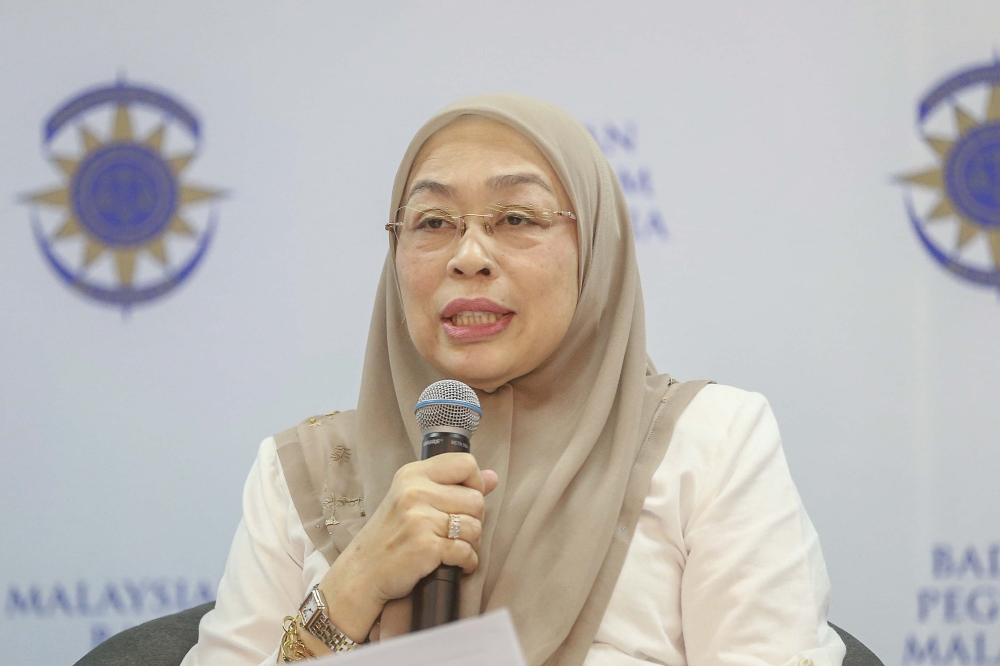
Datuk Shamrahayu Ab Aziz, who was also a former JAC member, said at the forum: “I believe by having JAC, we are in the right direction.”
Shamrahayu, associate professor and lecturer at International Islamic University Malaysia, said it “may not be possible” in both Malaysia and other countries to totally remove the participation of the government’s executive branch, but said there could instead be “certain limitation” on the prime minister’s role instead in the process of appointing judges.
She said there must be mechanisms to ensure the executive’s involvement in the process was a “controlled one” and that the executive is not given total discretion.
Proposing that JAC’s role be inserted into the Federal Constitution, she said Malaysia should also consider giving JAC members security of tenure so that the “JAC will also give their recommendations to the prime minister without fear or favour”.
She said the criteria of those to be selected as JAC members should also be further discussed.
These legal experts were all speakers in two separate panels at the Malaysian Bar’s forum titled “Judicial Independence in Malaysia: Past Lessons, Current Challenges”.
Other panellists at the forum were former JAC member and retired Court of Appeal judge Datuk Mah Weng Kwai and lawyer Mohamed Haniff Khatri Abdulla.

